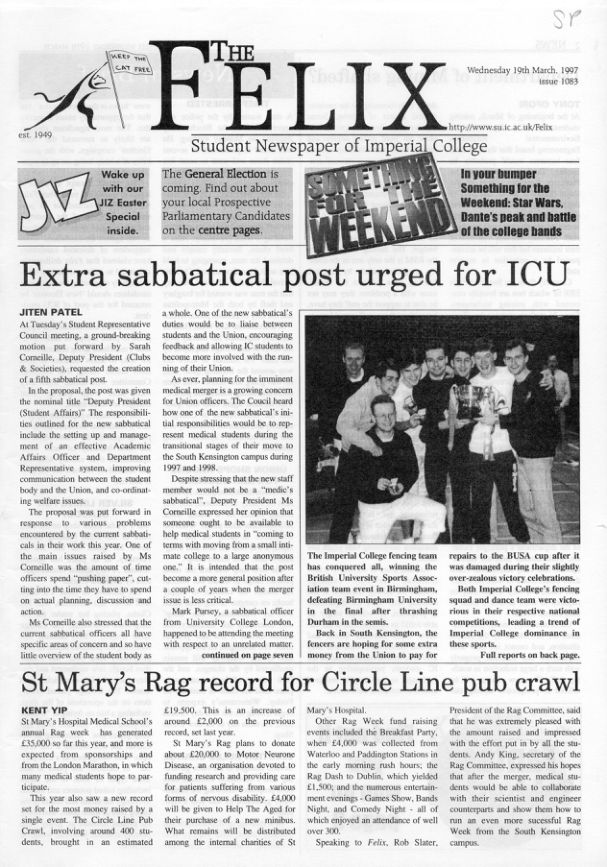IC Symphony Orhcestra
Programme included:
Benjamin Britten Four Sea Interludes Antonin Dvorak Cello Concerto
Camille Saint-Saens Third (Organ) Symphony
Conductor Richard Dickins
Cello Amanda Truelove
Organ Andrew Earis
A capacity audience heard a programme which spanned late Victorian and post-war times and which, as it happens, consisted of pieces which were first performed in London.
The Four Sea Interludes, evoking the Suffolk coast and encapsulating a great opera, were played with great nervous energy. The music is transparently scored but with many strands, requiring a large orchestra in which all of the sections are very exposed at various times. It poses problems for the conductor in maintaining coherence, but these were brilliantly solved by Richard Dickins.
Particularly memorable were the violence of the "Storm" section and the gentle swells on syncopated beats in the "Moonlight" interlude.
The soloist in the Dvorak Cello concerto is in the Mainardi Trio, which gave an exhilarating performance of a Brahms piano trio at an IC lunchtime concert last term. In the concerto we heard her give, by turns. an impressive and lyrical account. An impeccable rendering of the opening horn solo followed by the difficult see-saw arpeggios of the cello, negotiated with apparent ease, set the standard for this performance of the greatest cello concerto of all.
The emotional content comes mainly from the devotion of Dvorak for his sister-in-law who died just after completion of the first version. He revised the last movement, repeating in subdued form a song of his (0p82 No.1) which she loved and which he had already quoted in the slow movement.The concerto is something of a memorial.
The soloist was ideal for the moving Adagio and went on to play the last movement with great panache. A great talent developed before our eves. The soaring violin solo of the last movement was handled beautifully by the leader, Ed Bale. Dvorak and Dickins both made sure that the soloist was not swamped by the huge orchestra.
Andrew Earis, a first year RCM/IC student, gave a great performance at the organ, which prompts the suggestion that it is high time for a lunch time series of organ recitals





